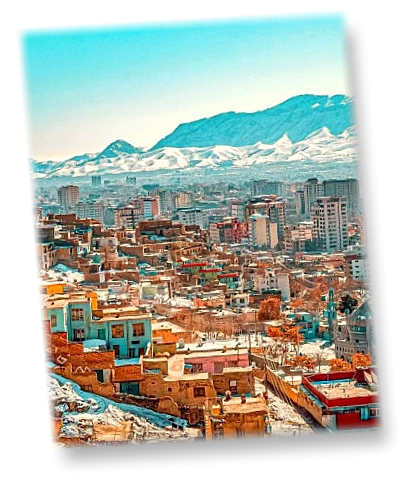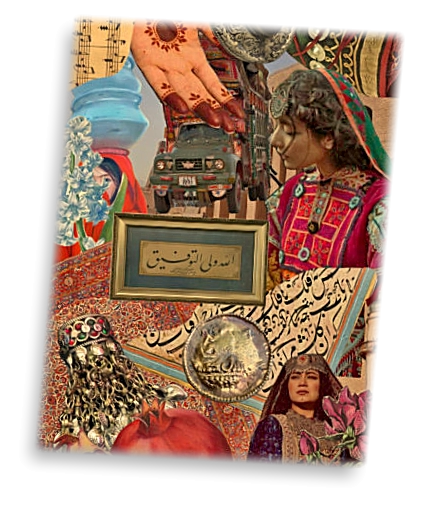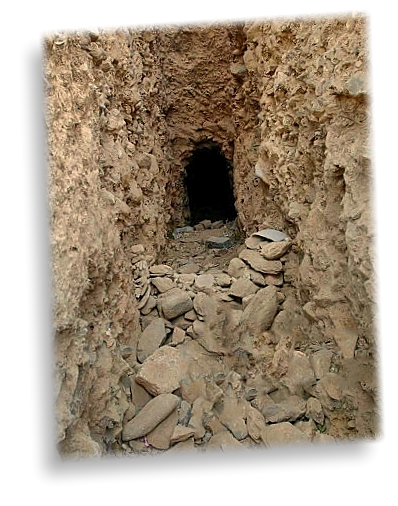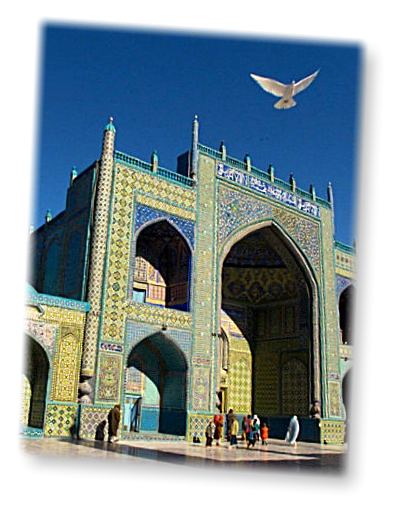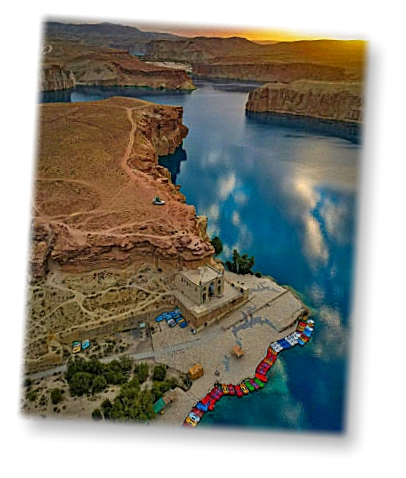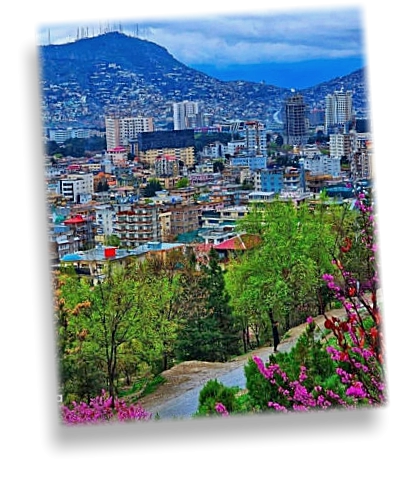
























From the majestic peaks of the Hindu Kush to the bustling streets of Kabul, Afghanistan beckons
adventurous travelers with its beauty, history, and hospitality. Whether you're exploring ancient
ruins, savoring delicious cuisine, or embarking on thrilling adventures, a journey to Afghanistan
promises to be an unforgettable experience. Plan your trip today and discover the hidden
treasures of this fascinating country.
Beach Resorts:
N/A
Ski Resorts:
N/A
Spa Resorts:
While spa resorts are not common in Afghanistan, visitors can
enjoy traditional hammams and wellness treatments in cities
like Kabul and Herat.
Travel Adventure Locations
Mountain Locations:
The Hindu Kush mountain range offers trekking,
mountaineering, and breathtaking views.
Seaside Locations:
While Afghanistan is landlocked, neighboring countries
like Pakistan offer access to seaside destinations.
Cultural Travel Locations:
Explore ancient cities, archaeological sites, and vibrant bazaars
to immerse yourself in Afghanistan's rich cultural heritage.
Ethnicity and Languages:
Afghanistan is home to diverse ethnic groups, including
Pashtuns, Tajiks, Hazaras, and Uzbeks, with Dari and
Pashto as the official languages.
Average Weekly Budget for Accommodation:
Hostel: $100 - $150 per week
Hotel: $300 - $500 per week
(Depends on season, location and category)
Average Daily Budget for Food:
Street Food: $5 - $10
Restaurant: $20 - $30
(Depends on season, location and category)
Best Season to Visit:
Spring (March to May) and Autumn (September to November)
offer pleasant weather and are ideal for exploring the country's
diverse landscapes and cultural attractions.
Brief Travel Information about Afghanistan
Drinks
Qandahar Green Tea: Green tea is an integral part of Afghan
hospitality and culture. It's often served sweetened with sugar and
flavored with cardamom or other spices.
Afghan Black Tea: Similar to green tea, but made with black tea
leaves and often served with milk and sugar.
Dogh: A refreshing yogurt-based drink mixed with water, salt, and
sometimes mint or cucumber. It's especially popular during hot
summer months.
Sekanjabin: A sweet and sour syrup made from vinegar and
honey, often mixed with water to create a refreshing drink.
Sometimes flavored with mint or ginger.
Sheer Chai: Also known as "pink tea," Sheer Chai is a creamy,
sweet tea made with green tea leaves, milk, sugar, and often
cardamom. It gets its pink color from the addition of baking soda
during the brewing process.
Sahlab: A warm, comforting drink made from ground orchid
tubers, milk, sugar, and spices like cinnamon and nutmeg. It's
especially popular in winter.
Fruit Juices: Afghanistan boasts a variety of fresh fruit juices,
including pomegranate juice, apricot juice, and orange juice, often
served freshly squeezed.
Doogh: A carbonated yogurt-based drink flavored with mint and
sometimes salt, Doogh is enjoyed as a refreshing beverage,
especially with kebabs or other grilled meats.
Aab-E-Zamzam: A traditional herbal drink made from a mix of
herbs, roots, and spices, often served hot and believed to have
medicinal properties.
Arak: An anise-flavored alcoholic beverage made from distilled
grapes, grains, or dates. It's a popular choice for celebrations and
special occasions.
Foods
Kabuli Pulao: Considered the national dish of Afghanistan,
Kabuli Pulao is a fragrant rice dish cooked with meat (usually lamb,
chicken, or beef), raisins, carrots, and a blend of spices like
cardamom, cloves, and cinnamon.
Mantu: These are delicate steamed dumplings filled with
seasoned ground meat, typically served with a garlicky yogurt
sauce and topped with a tomato-based sauce and dried mint.
Kebab: Grilled skewered meat, often lamb or chicken, marinated
in a mixture of spices and served with naan bread or rice alongside
grilled vegetables.
Bolani: A type of stuffed flatbread similar to a turnover, bolani is
filled with various ingredients such as mashed potatoes, leeks, or
spinach, then pan-fried until golden and crispy.
Ashak: These are dumplings filled with chive and served with a
yogurt-based sauce, garlic, and dried mint. Ashak is a popular dish
during celebrations and gatherings.
Qabuli Palaw: Similar to Kabuli Pulao but with a different method
of preparation. Qabuli Palaw typically features long-grain rice mixed
with lentils, raisins, and carrots, topped with sautéed sweetened
carrots and almonds.
Aush: A hearty noodle soup made with a tomato-based broth,
vegetables, and often topped with yogurt and dried mint.
Biryani: A fragrant rice dish cooked with meat (usually chicken or
lamb), yogurt, and a blend of spices such as saffron, cardamom,
and cloves.
Shorwa: A traditional Afghan soup made with meat (commonly
lamb or chicken), vegetables, and a variety of herbs and spices.
Bolani Kachaloo: Another variation of bolani, but filled with
spiced mashed potatoes and often served with chutney or yogurt
for dipping.
Afghanistan Cusine and Beverages
Kabul: Gateway to Afghanistan's Rich Culture. In the heart of
Afghanistan lies Kabul, a vibrant city teeming with life and history.
Dive into its bustling markets, where the sights and sounds of daily
life intertwine with the rich tapestry of Afghan culture. Delve into the
past as you explore historic sites such as the serene Babur
Gardens, a testament to the city's Mughal heritage, and the
National Museum of Afghanistan, where ancient artifacts unveil the
country's storied history.
Bamiyan: Guardians of Time. Nestled amidst the rugged
landscapes of central Afghanistan, Bamiyan beckons with its awe-
inspiring natural beauty and ancient treasures. Marvel at the
towering cliffs that cradle the remnants of the Buddhas of Bamiyan,
once towering symbols of Buddhist art and spirituality. Immerse
yourself in the timeless aura of this region as you explore
archaeological sites that whisper tales of civilizations long past.
Herat: Where History Resides in Architecture. Herat, a city
steeped in history and culture, unveils its splendor through its
architectural marvels. Wander through the maze-like alleys adorned
with intricately decorated mosques, mausoleums, and palaces,
each bearing testimony to the city's illustrious past as a center of art
and learning. Lose yourself in the intricate tile work and delicate
minarets that adorn these structures, transporting you to a bygone
era of opulence and grandeur.
Mazar-i-Sharif: A Sanctuary of Spirituality and Commerce. As
the beating heart of northern Afghanistan, Mazar-i-Sharif offers a
glimpse into the country's spiritual and economic landscape. Pay
homage to the Shrine of Hazrat Ali, a sacred site revered by
Muslims worldwide for its significance in Islamic history. Lose
yourself in the labyrinthine alleys of the city's bazaars, where the
vibrant hues of spices and textiles mingle with the lively chatter of
traders and shoppers, creating an atmosphere alive with energy
and tradition.
Balkh: Cradle of Civilization. Step back in time as you explore
the ancient city of Balkh, often hailed as the "Mother of Cities" for
its role as a cradle of civilization in Central Asia. Wander through its
storied streets, where echoes of bygone eras resonate amidst the
ruins of once-majestic palaces and temples. Immerse yourself in
the rich tapestry of history as you visit landmarks such as the
imposing walls of the ancient citadel and the revered tomb of the
Sufi poet Rumi.
Band-e Amir National Park: Nature's Masterpiece. Prepare for
a journey into the heart of Afghanistan's natural wonders with a visit
to Band-e Amir National Park. Trek along winding paths that lead to
breathtaking vistas of turquoise lakes cradled by towering limestone
cliffs, creating a landscape straight out of a painter's dream. Lose
yourself in the serenity of this pristine wilderness, where the tranquil
waters mirror the endless expanse of the sky, inviting contemplation
and reflection.
Panjshir Valley: Where Tranquility Meets Majesty. Discover a
sanctuary of serenity nestled amidst the rugged beauty of
Afghanistan's Panjshir Valley. Lose yourself in the verdant embrace
of lush greenery that carpets the valley floor, framed by towering
mountains that stand as silent sentinels against the passage of
time. Experience the harmony of nature as you stroll along
meandering streams and breathe in the crisp mountain air, finding
solace in the timeless tranquility of this picturesque landscape.
Kandahar: Echoes of the Past in Afghanistan's Second City.
Journey to Kandahar, Afghanistan's second-largest city, where
echoes of the past reverberate through its ancient streets and
historic landmarks. Explore the city's cultural heritage as you
wander through its bustling markets, where the vibrant colors of
traditional crafts and spices ignite the senses. Immerse yourself in
the tapestry of Afghan life as you visit sites such as the imposing
fortress of Qala-e-Bost and the revered shrine of the Sufi saint
Ahmad Shah Baba.
Paghman Gardens: A Oasis of Tranquility. Escape the frenetic
pace of city life and retreat to the idyllic oasis of Paghman Gardens,
where verdant landscapes and serene springs await. Stroll through
lush gardens adorned with vibrant blooms and fragrant fruit trees,
each corner offering a new vista of natural beauty. Relax by tranquil
pools fed by refreshing mountain springs, letting the soothing
sounds of flowing water wash away the cares of the world.
Tora Bora: Nature's Fortress. Embark on an adventure into the
rugged terrain of Tora Bora, a region known for its natural beauty
and historical significance. Explore the labyrinthine caves that once
served as a hideout for militants, now offering intrepid hikers a
glimpse into the region's tumultuous past. Marvel at the sheer cliffs
and sweeping vistas that define this untamed landscape, where
every step is a testament to the resilience of nature and the human
spirit.
Interesting Places to Visit in Afghanistan
Afghanistan: The Crossroads of Asia. Afghanistan holds the
title of the "Crossroads of Asia" owing to its strategic positioning at
the intersection of ancient trade routes that connected the
continents of Europe, Asia, and the Middle East. This geographical
advantage has played a pivotal role in shaping the country's history
and culture.
Ancient Inhabitation and Civilizations. For over 50,000 years,
Afghanistan has been inhabited, with evidence of early civilizations
dating back to the Bronze Age. This prolonged habitation
underscores the deep-rooted history of human settlement in the
region and highlights Afghanistan's significance as one of the
cradles of civilization in Asia.
The Silk Road Hub. As a key center of the Silk Road,
Afghanistan facilitated the exchange of goods, ideas, and cultures
between distant civilizations. This vital role in trade helped
Afghanistan thrive economically and culturally, leaving a lasting
imprint on its society and landscape.
Imperial Legacies. Throughout history, Afghanistan has been
part of several powerful empires, including the Achaemenid,
Maurya, and Kushan Empires. These imperial influences have left
behind a legacy of architecture, art, and governance that continues
to shape Afghanistan's cultural landscape to this day.
Islamic Heritage. Afghanistan boasts a rich Islamic heritage,
evident in its breathtaking mosques and madrasas dating back to
the 7th century. These architectural marvels serve as a testament
to the country's deep spiritual roots and its pivotal role in the spread
of Islam in the region.
The Tragedy of the Buddhas of Bamiyan. The destruction of
the Buddhas of Bamiyan by the Taliban in 2001 shocked the world
and sparked international outrage. These colossal statues, carved
into the cliffs of Bamiyan Valley, were UNESCO World Heritage
Sites and stood as symbols of Afghanistan's diverse cultural
heritage.
Kabul: A City of History and Strife. Kabul, the capital city of
Afghanistan, has a long and tumultuous history, serving as the seat
of power for various rulers and empires. Its strategic location and
rich cultural heritage have made it a coveted prize for conquerors
throughout the ages.
The Great Game. During the 19th century, Afghanistan became a
battleground for the Great Game, a rivalry between the British and
Russian Empires for control of Central Asia. This geopolitical
struggle had far-reaching consequences for Afghanistan, shaping
its modern borders and political dynamics.
Decades of Conflict. Afghanistan has endured decades of
conflict, including invasions, civil wars, and the rise of extremist
groups. These conflicts have exacted a heavy toll on the country's
people and infrastructure, leaving scars that are still visible today.
Resilience and Cultural Identity. Despite its challenges,
Afghanistan remains resilient, with a vibrant culture and a strong
sense of identity. The Afghan people have shown remarkable
perseverance in the face of adversity, holding onto their traditions
and heritage as they strive for a brighter future.
Interesting Historical Facts about Afghanistan
Situated in the heart of Central Asia, Afghanistan is a land steeped
in history, with a rich tapestry of cultures, traditions, and
landscapes. From its bustling bazaars to its rugged mountains,
Afghanistan offers visitors a unique and unforgettable travel
experience.
Afghanistan

